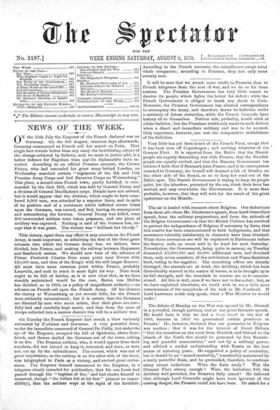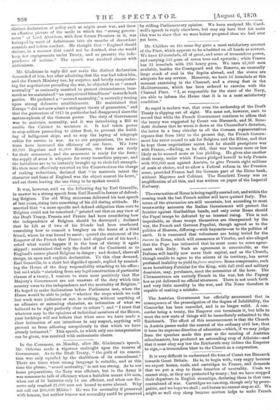The debate of Monday on the War was opened by
Mr. Disraeli in a powerful, though partizan, and at one point fantastic speech. He would have it that we had a locus standi in the war of 1866, because in 1815 we guaranteed certain provinces to Prussia! He, however, declared that our guarantee to Belgium was modern ; that it was for the interest of Great Britain "that the countries in the coast from Dunkirk and Ostend to the islands of the North Sea should be possessed by free flourish- ing and peaceful communities," and not by a military power, and advised a cordial understanding with Russia as the best means of restoring peace. He supported a policy of neutrality, but it should be an "armed neutrality," a neutrality maintained by a really powerful State, and he proceeded, therefore, to condemn many recent redactions. Were the forts ready ? Was the Channel Fleet strong enough ? Were the battalions full, the Artillery well provided, the Reserves fully armed? He believed that although Lord. Granville might have been ignorant of the coming danger, the Premier could not have been. He asked for a distinct declaration of policy such as might avert war, and drew an effective picture of the mode in which the "strong govern- ment" of Lord Aberdeen, with four future Premiers in it, was betrayed by want of definiteness into six months of discordant counsels and infirm conduct. He thought that "England should declare, in a manner that could not be doubted, that she would keep her engagements under Treaty, and so preserve the inde- pendence of nations." The speech was received almost with enthusiasm.































